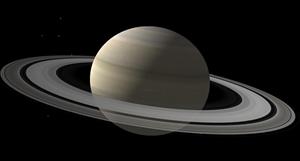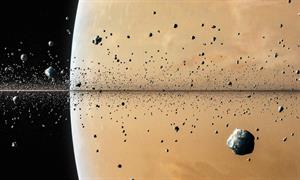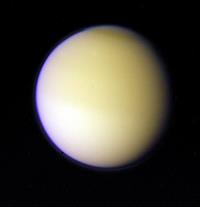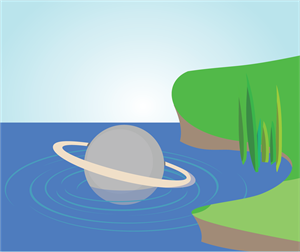PDF chapter test TRY NOW
The sixth planet, Saturn, is the second-largest gaseous giant after Jupiter. It appears yellow. The period of rotation is \(10.23\ hours\), and the period of revolution is \(29.46\ years\).

Saturn
Saturn is a unique planet with beautiful rings around it. Hence, it is also known as the 'Ring planet'. The seven rings of Saturn are made up of asteroids.

Rings of Saturn
Satellites of Saturn:
Saturn has around \(60\) moons. Some of them are Titan, Enceladus, Mimas, Dione, and Tethys. Titan is the largest natural satellite of this planet and the second-largest natural satellite in the solar system, after Ganymede (Jupiter's moon).
Saturn has around \(60\) moons. Some of them are Titan, Enceladus, Mimas, Dione, and Tethys. Titan is the largest natural satellite of this planet and the second-largest natural satellite in the solar system, after Ganymede (Jupiter's moon).

Titan
Planet's density:
Saturn has the least density compared to the other planets in the solar system. The density of this planet is less than the water. The planet's density is \(30\) times lesser than Earth. For example, imagine if Saturn is kept on a pool of water, it can even float on it.

Saturn floating on water
Reference:
https://live.staticflickr.com/348/32004738971_2060cef44c_b.jpg
https://upload.wikimedia.org/wikipedia/commons/4/4b/Titan_-_Nov_11_1980_%2822485272399%29.jpg
